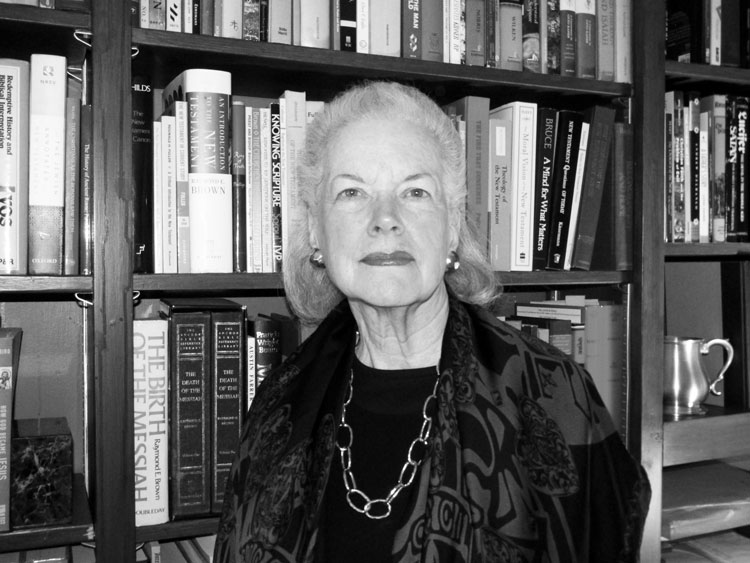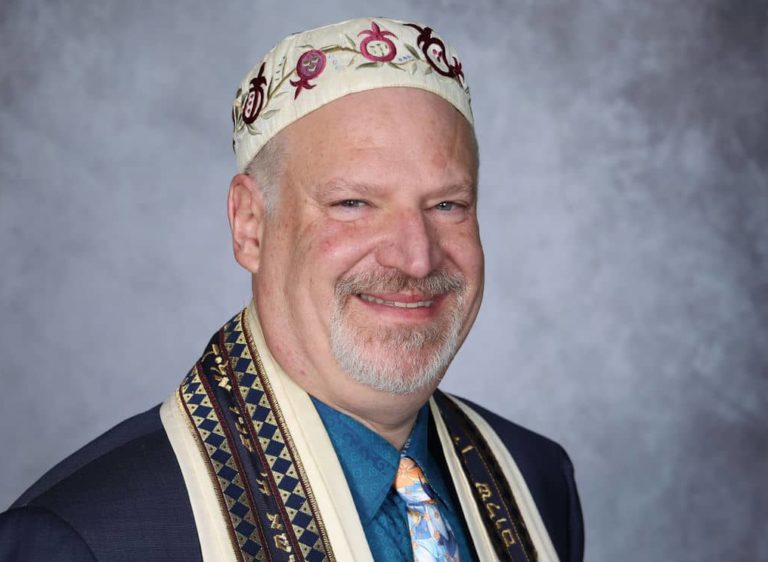
By Anne W. Semmes
Sentinel Features Reporter

Fleming Rutledge, her native Virginia accent still strong, is a familiar voice of faith in Greenwich. A retired Episcopal minister, she has spoken often at Christ Church Greenwich, which she and her husband Dick attend.
This past weekend, while cameras for the PBS program “Religion & Ethics NewsWeekly” rolled, Rutledge discussed a chapter of her new book with its season-timely title, The Crucifixion – Understanding the Death of Jesus Christ, before an audience of a hundred or more in Christ Church’s Parish Hall.
Rutledge’s 669-page book, what she calls the “work of a lifetime” – is a masterfully documented challenge to preachers, “other seeking Christians,” and “thinking unbelievers” to correct what she sees as a half-century theological drift from focusing on the crucifixion of Christ.
“I wanted to be as persuasive as possible in rethinking the superficial dismissal of the central feature of our Easter message, the crucifixion,” she said. “Because the resurrection becomes essentially meaningless without the crucifixion. The resurrection without the cross is open to all kinds of trivialization.”
She pointed to Easter cards. “There are Easter cards with prettily decorated crosses, but the crucifixion is not pretty,” she noted. “The risen Christ still has his scars. They haven’t gone away.”
“The cross says to us – among other things – that Christ has experienced the worst that humanity could do. The cross wasn’t just physical suffering, it was an experience of the most extreme degradation and dehumanization. The Romans designed it that way, as a method of execution causing extreme shame.”
“Our understanding of the cross and resurrection has been too small.” she said. “The Easter message tells us of the horror and gravity of sin which is overcome in the cross. That’s the New Testament story. The Son of God took into his own body the full weight of the sin of the world and in doing so conquered it.” Her Easter card message is: “Christ is victorious over death and every evil and has established a new kingdom of life and love.”
Rutledge’s chapter headings are illustrative: “The Primacy of the Cross,” “The Godlessness of the Cross,” “The Gravity of Sin.” She defines “the sin of the world” as a collective term “involving the whole human race.” As examples of that collective sin, she spoke of the narcotics trade, the misery brought on by the drug cartels, and the “lawless ocean” with its slave labor on fishing boats producing cat food we feed our pets. “We are all involved in this,” she said, quoting poet John Donne’s famous line, “No man is an island/Entire of itself.”
Rutledge places herself outside of the academic world, yet her new book has just won the 2015 Best Reference Book Award by the Academy of Parish Clergy. Her sources throughout the book have relevant ties to the contemporary world of art, music, and literature. “The events of today are essential for theological work,” she said, “especially in such evil, destabilizing times.”
The idea for The Crucifixion book came in part, she said, from her many guest-speaking engagements in churches across America: “I was observing that very few people understood in the New Testament when Jesus is crucified just what God was doing.”
“The cross stands over all human life,” she said. “It is the scene of God’s climactic power against a malevolent and implacable enemy. The measure of the greatness of Easter is the greatness and horror of sin which is overcome in the cross. That’s the New Testament picture. God was doing something about sin.”
“There is something sickening in human nature that is just under the surface,” she added. “We’re seeing that on the political stage right now. Christ took into himself the very worst but the very worst was no match for him.”
Rutledge traces the gestations of her new book to her teenage years growing up in the small town of Franklin, Virginia, attending a small Episcopal church. “I had found the cross riveting for me as a child,” she recalled. Her rector, John M. Gessell, saw that interest in the young teenager. Often coming for supper to converse with her parents, the young minister encouraged Rutledge “to think theologically and to write about it.”
Rutledge would become one of the first women ordained as a priest by the Episcopal Church.
With Good Friday a week away, Rutledge observed how “people want to rush to Easter” without taking in the importance of Good Friday, the day of Christ’s crucifixion. “Good Friday should be a very solemn day of mourning and interpretation,” she said. She recalled the days when “there used to be three hours of preaching.” Her wakeup call was, “Without crucifixion preceding it, the resurrection is vacuous.”
Perhaps, Rutledge opined, “affluent people don’t want to look at something challenging…Funerals today are not about burying the dead – they’re about the ‘celebration of life.’ So, of course we don’t want to look at the cross.” In the final analysis, she said, “the resurrection should not be interpreted solely as the victory of love, but also as the conquest of sin and death. Love cannot triumph unless sin and death are vanquished.”
Postscript: Portions of Fleming Rutledge’s talk, “Sin as Good News” will be shown on the PBS show “Religion & Ethics NewsWeekly” next Friday, March 25. Her book The Crucifixion – Understanding the Death of Jesus Christ is available at the Christ Church Book Store.




